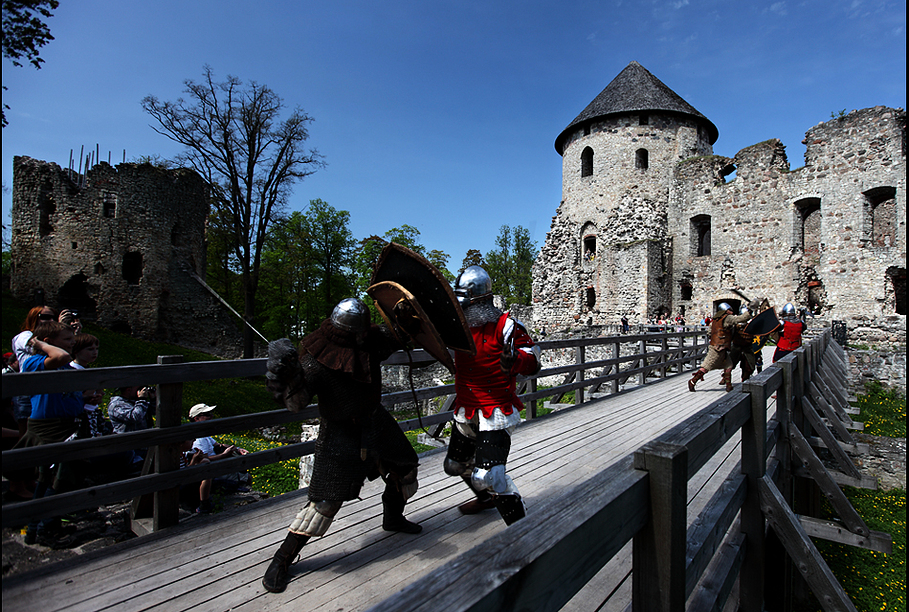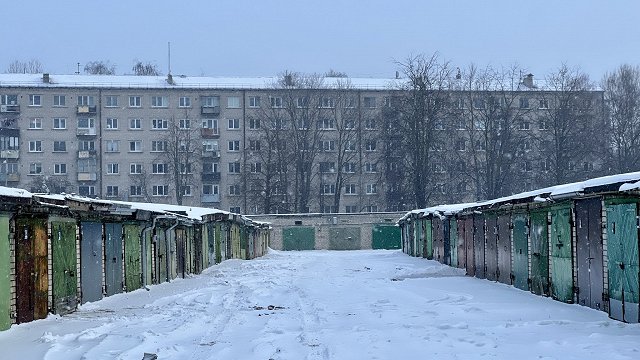"We don't have precise figures but we estimate around 3,000 or 4,000 people have gone," Cēsis mayor Janis Rozenbergs tells LSM.
"Twenty years ago the population of Cēsis was 20,000. Right now, on paper it's 17,000 but in real life it's 15,000. We have negative demographics and along with that we have emigration," he says at a conference showcasing a new initiative his town is taking to lure back those who have left in search of work abroad.
Certainly the figures are worrying. Data released July 17 by the Central Statistical Bureau (CSB) showed that the population of Latvia dropped by 14,300 or 0.7% during 2013 and shows no sign of slowing.
82.8% of emigrants in 2013 were of working age, with 23% of that number young people aged 15 -24.
From 2000 to 2013, 259,000 people or 13 percent of the population emigrated and the total population of the country is believed to have dipped below 2 million in 2014.
“It's a very sensitive issue. Many people don't speak about it but it's time to speak out loudly at both national and local level. We can't predict how many people we will get back but everyone we get back is value for us, a positive example we can show to others," says Rozenbergs.
The Cēsis plan is simple - in contrast to the complex procrastination exhibited by state-level initiatives - and concentrates on maintaining direct contact with expats at municipal level, helping them deal with the huge paperwork if they do decide to return and above all making sure Cēsis can provide high-quality education to their children.
It's a very sensitive issue. Many people don't speak about it but it's time to speak out loudly at both national and local level"
“In the last few weeks we've seen five or six families who have come back because their children are of school age. That's when they make a decision about where the family will live and where the children will go to school," says Rozenbergs.
"In Cēsis we are lucky that we have high-level schools with a family-friendly environment and we're quite close to Riga," he adds in a phrase that turns on its head an old Cēsis joke that the town is 'Just too far away from Riga, and Riga is just too close to Cēsis '.
City leaders also went to the UK to spread the message that Cesnieki there had not been forgotten by their home town and plan a similar trip to Ireland soon.
“The main message we tried to get across on our UK visit was that we remember you and we don't want to lose this connection. We want to keep this emotional tie with Cēsis. Plus we need practical tools to be ready to welcome them with open arms."
Those practical tools have included setting up a special telephone helpline for people considering a return and publicizing job vacancies more prominently.
According to Andris Teikmanis, Latvia's ambassador to the United Kingdom, interest in returning home is slowly growing.
“We do see more interest, though it's quite difficult to judge how many are preparing to come back. In the UK now there are 34,000 Latvians registered, though we reckon the total Latvian community might be around 100,000," Teikmanis says.
“In the last two years there have been more cases of people buying a one-way ticket back to Riga. One of the reasons is that families decide their children should get a Latvian education, but the reasons people return are just as different as the reasons they originally decided to go to the UK.
“It's a very good initiative indeed and I very much hope other towns and cities will follow it," Teikmanis says.
The reasons people return are just as different as the reasons they originally decided to go"
His words that are echoed by Janis Kukainis of the World Federation of Free Latvians, an organization that has endured the many waves of Latvian emigration over the years.
Kukainis makes no attempt to hide his frustration with previous state-level drives to encourage re-emigration, describing some of the research carried out as nothing but "well paid tourism".
"We need to help ourselves and not wait for the state to help us," he says, "This could serve as an example not just to other towns in Latvia but to other towns around the world with emigration problems."
But plenty of work remains to be done to attract Latvia's best and brightest home. A prime target would be someone like Lelde Krumina, from Jaunrauna, just outside Cēsis.
Highly educated, she left her homeland for the UK in 2009 after studying international relations in Latvia and the Netherlands. She speaks flawless English with a slight Scottish accent as she now calls Edinburgh home.
“I went to the UK in 2009. I wasn't after a better salary or anything like that. I wanted to learn English and I wanted to travel around. I like Cēsis, I wasn't running away from anything," she says.
If I come back, basically I am an outsider"
"I have no idea if I will return to Latvia. I want to, but maybe not now. If I came back I wouldn't be sure what I would do. It's the same for my friends in London – if they come back, what will they do? You get involved in things there, you make friends, so it's a big decision to leave that life and come back here where, in a way, you are a stranger. If I come back, basically I am an outsider," Krumina says.




























